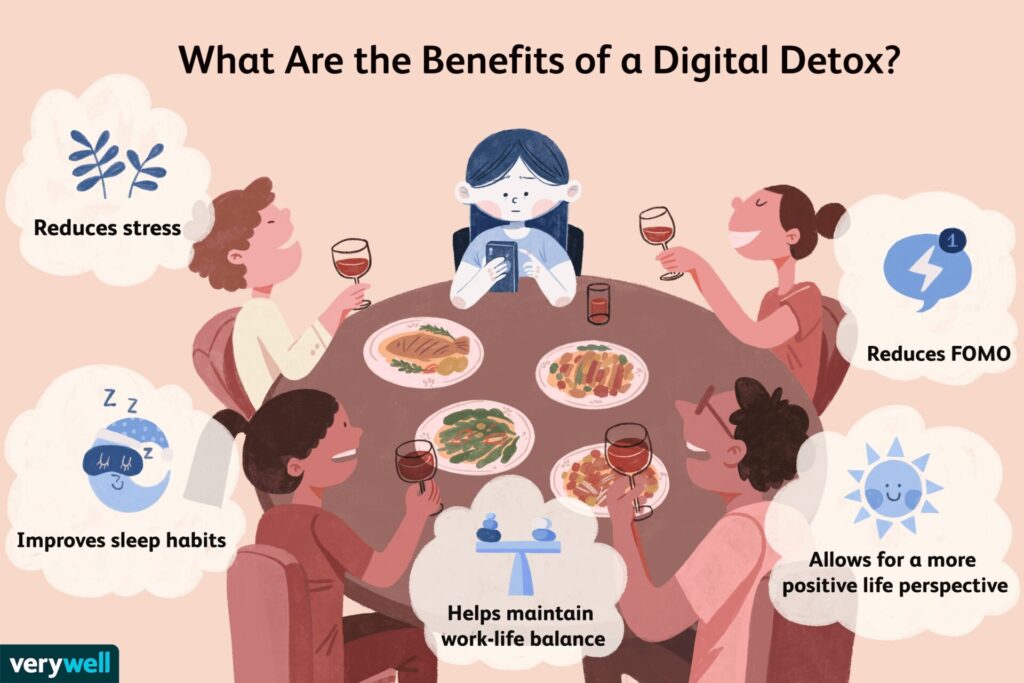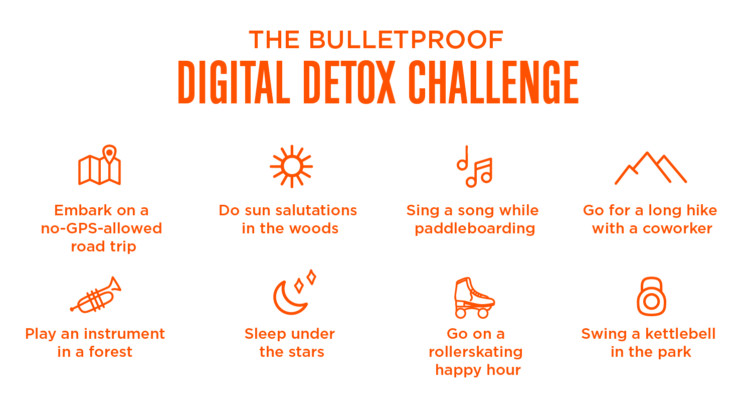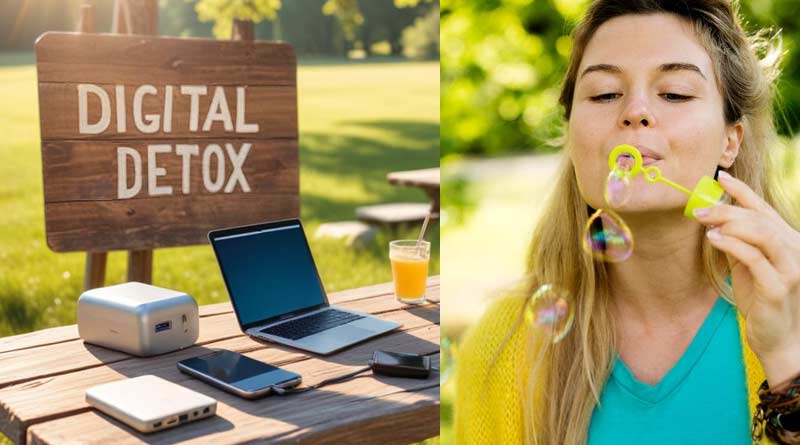You’re addicted. No longer to caffeine or chocolate, but to that little, brightly lit screen in your hand. Your phone is a digital black hole that draws out your attention span and produces anxiety. Stop – this was the signal that was displayed and probably needed to be indicated at that precise moment. Digital detox does not mean that a person should avoid the world and scroll through social media all day it means a person should reconnect with the useful world and improve their condition. It is time to disconnect the unnecessary distractions, relax, and enhance your brain.
The Impact of Digital Overload on Mental Health

The level of connectivity in the present generation through the various forms of technology has aggravated mental health issues. Children who spend long hours on screen are barely healthy as they experience anxiety, depression, and poor sleep patterns. The constant flow of notifications and the information overload damage our brains, and thus we are unable to concentrate. Despite the unity through social media, bullying, and uncontrolled comparison act as the leading cause of low self-esteem and thus result in low self-esteem. This ‘comparison culture’ alongside cyberbullying does not let a person’s mental health be intact. One must acknowledge the negative consequences of the new digital overdose and start the process of healing.
Benefits of Digital Detox

- Improved mental clarity and focus: Silence or taking a break from all the stimuli from technology allows the brain to have a break or time to recover. This mental clarity improves your focus and clarity in the workplace and helps in problem-solving and idea generation.
- Reduced stress and anxiety: In this case, it shows that this pressure to be constantly connected can put one in a state of stress and anxiety. A digital detox gives a much-needed rest from this stimulus, and this results in having a relaxed brain.
- Better sleep quality: The light emitted by electronic devices, particularly blue light affects the sleep quality of users. It is the body clock to assists in creating melatonin naturally, and you derive significant gains in your health when you sleep with no interference from electronics.
- Increased productivity: The alert and interruption are not good for concentration or for getting anything done. A digital detoxion gets rid of these interferences and one can focus on tasks and get them done.
- Strengthened relationships: Lack of distractions when indoors with family or friends strengthens the bonds that people have since the distractions are eliminated by the lockdown. Real contacts and talks are built, which result in better relationships.
- Rediscovering hobbies and interests: Thus, it is an excellent idea to free oneself from the technologies for some time, focus on what initially interested a person, and discover new hobbies. This personal growth can be highly beneficial One has to understand that this self-growth can also be highly rewarding.
How to Start a Digital Detox?

- Setting realistic goals and expectations: Start with incremental goals, baby steps, or with the latter, baby steps to the goal. Do not aim at the complete abandonment of this screen time within the first week.
- Choosing a detox duration: There is no one hard and fast duration that suits all people, so decide the period that is feasible and comfortable for you. This could be as short as taking a weekend trip or more inclusive as in taking a week or more to engage in the activity.
- Developing alternative activities: Engaging in hobbies or activities should be adopted whenever screen time is to be replaced. Spend time in parks, read, or just go out with friends/family.
- Overcoming challenges and dealing with withdrawal symptoms: This is why it is possible to wait for nervousness and frequent boredom. The following are the challenges faced: One should therefore practice mindfulness and self-care.
- Gradual reintegration into digital life: Introduce the usage of technology gradually to avoid disruption of the practice. For this reason, it is essential to set some rules and come up with a certain working environment balance.
Creating a Sustainable Digital-Life Balance
- Set Boundaries: Eliminate the use of technologies in some areas of the house, avoid using gadgets half an hour before bed, and have a clear separation of working and resting hours.
- Mindful Consumption: Control what you are reading, be minimalist with the internet, and, overall, understand the effects of social media.
- Prioritize Real Connections: Agree on when one needs to meet physically, avoid technology usage during social activities, and focus on building strong bonds.
- Balance and Flexibility: Try, explore, discover, implement, fail, study, learn the best way, and do not stick to the rules.
- Self-Care: Strive to be aware of the situations, get to engage in activities or pastimes, and ensure that one’s physical and mental health is okay to ensure a balance between digital life and reality is obtained.
Reclaiming your focus and well-being starts with a conscious decision to unplug. By understanding the impact of digital overload and implementing practical strategies, you can create a harmonious relationship with technology. Remember, it’s not about eliminating screens, but about finding balance and prioritizing your mental health. You may also like other posts in our Health section.





